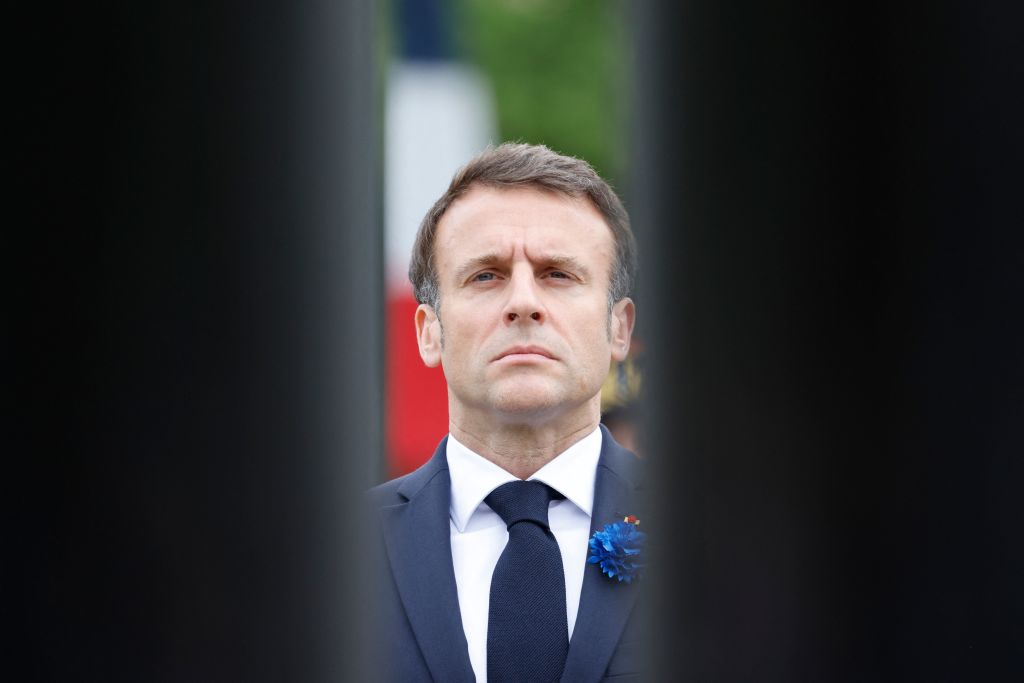Across Europe the numbers are soaring. In Britain, net migration figures are expected to near 1 million when the figures are released later this month; in Germany, there have been 101,981 asylum applications so far this year, an increase of 78 percent on the same period in 2022.
2022 was a record year in France with the arrival of nearly half a million legal migrants. This is on top of those who are in the country illegally. According to the MP for Nice, Eric Ciotti, president of the center-right Republican Party, there could be as many as one million in this category.
Extremism is not only present on both sides, it is rising
The crisis in France has become so grave that respected politicians are warning of looming disaster. In a television interview on Thursday morning, Bruno Retailleau, the Senate leader of the Republicans, expressed his fear for the future. Lamenting the government’s reluctance to tackle what he described as the “migratory chaos,” Retailleau said this inertia could “lead to civil war.”
Shortly after the interview, news broke that the mayor of Saint-Brevin-les-Pins in western France had resigned after he was targeted by an arsonist who burned his car and part of his house. The attack happened in late March, but Yannick Morez took the decision to step down because of a “lack of support from the State” in the weeks since.
Although police don’t have a suspect they do have a motive: local opposition to the relocation of existing asylum accommodation to a site close to an elementary school.
Morez was appointed mayor of Saint-Brevin-les-Pins in 2017, a year after the town accepted a group of migrants from the recently dismantled “Jungle” camp near Calais. Morez said there has “never been the slightest problem” between migrants and locals, until plans were unveiled for the new accommodation.
This led to demonstrations organized by Éric Zemmour’s far-right party Reconquest Party, as well as counter-demonstrations from pro-migrant far-left activists.
Caught in the middle was Morez, a sixty-two-year-old doctor with a sense of community spirit that is increasingly under attack in the Republic. Since the municipal elections in 2020, nearly 4,000 elected officials have resigned their position, including 238 mayors. These are unprecedented figures and, while the reasons for the resignations are varied, a common theme is the verbal and physical abuse directed at the Republic’s representatives.
These conscientious men and women have become the punchbags for the political class in Paris, who are regarded as remote, aloof and disconnected from the people they purport to represent. For many MPs, whatever their party, parliament seems little more than a stage on which to strut.
Politicians who had said nothing after the initial attack on Morez’s home found their voice after his resignation, although many appeared to be more interested in exploiting the news for political ends rather than genuine remorse at the loss of another mayor. While Emmanuel Macron expressed his solidarity for the mayor, left-wing MPs blamed the State for the lack of support offered to him.
Others talked of “far-right terrorism,” and demanded that the National Assembly rise to applaud Monsieur Morez; Marine Le Pen’s National Rally MPs did not participate despite the invitation from the opposition benches. It was a puerile spectacle that served only to reinforce the sentiment among voters that their MPs are not fit for purpose.
The most — possibly the only — coherent political response came from Prime Minister Elisabeth Borne, currently visiting the French Department of Réunion in the Indian Ocean. “The fact that this fire is linked to the relocation of a reception center for asylum seekers shows that there is a rise in extremism in our country,” she said. “Obviously we must be very, very vigilant on this subject. Extremism is present on both sides of the political spectrum.”
The idea that extremism could be present on the left caused uproar. “Incredible, dangerous” was the reaction of Chloé Ridel, the spokeswoman for the Socialist Party.
But the facts speak for themselves. Since March nearly 2,000 police officers have been injured by far-left extremists during pension reform protests and environmental demonstrations. Shops, restaurants, banks and town halls have been burned or vandalized, so too the office of Eric Ciotti, the president of the Republican party.
On that occasion there was no round of applause in parliament from left-wing MPs.
Borne is correct. Extremism is not only present on both sides, it is rising, and the sight of hundreds of masked far-right extremists marching through Paris last Saturday sent a chill through the Republic.
Two years ago, 10,000 retired French army officers, among them twenty generals, wrote an open letter to Macron and his government in which they warned of a “disintegration” of French society as a result of political mismanagement over many years. Act now, they cautioned the president, otherwise “tomorrow civil war will put an end to the mounting chaos.”
The letter was ignored and its signatories mocked as Colonel Blimps. But two years on the disintegration of France continues, the chaos mounts and the prospect of civil war no longer feels so far-fetched.
This article was originally published on The Spectator’s UK website.

























